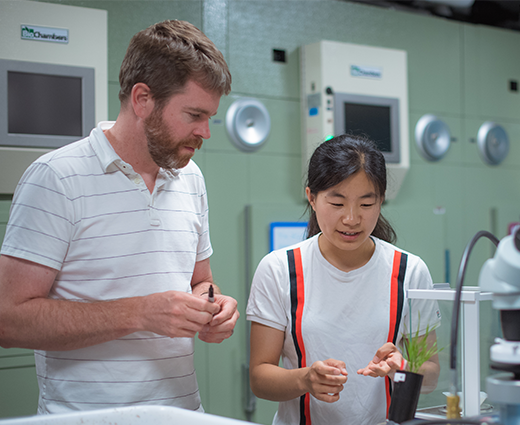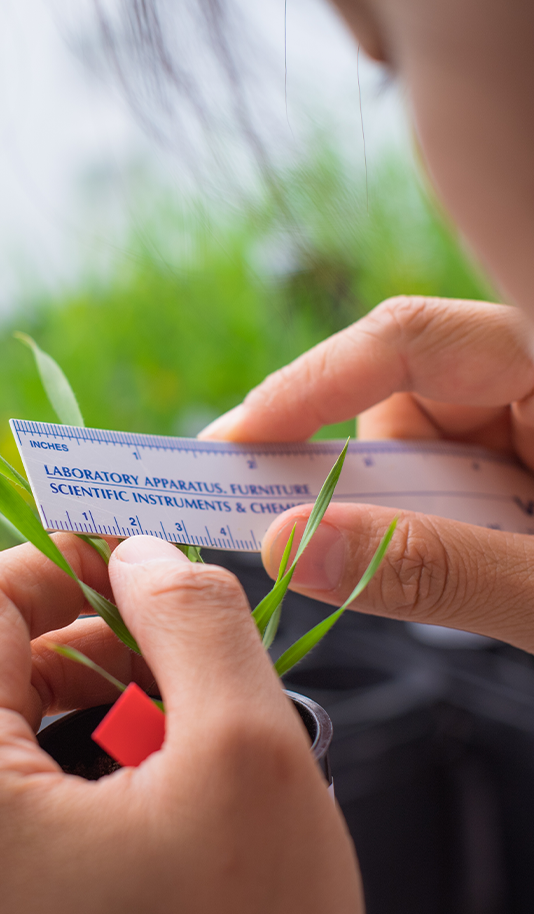CLOSE


Our work applies engineering and science principles to develop sustainable solutions for more robust and resilient agricultural, food and water systems.
How can we sustain our food and water supply under a growing global population, increasing costs, rising poverty levels and the effects of climate change? The challenges the world faces in food and water security are escalated by rapidly varying conditions
of the supply chain a changing climate that threatens crop production and soil productivity, toxins filtering through our water supply and aquatic systems, health and environmental impacts of food waste, and foodborne illnesses.
Our faculty, students and staff are particularly focused in solving complex problems at the interface between better prediction of climate, plants adaptation to climate change, effective use of agricultural water to mitigate climate’s impact on agriculture, precise delivery of pesticide and fertilizers, soil regeneration, and materials-based innovation to enhance food security and food safety.
Key areas include:

Engineering sustainable solutions to tackle the global crisis of food and water insecurity. ”